Disk Storage clean-up🔗
You can free up more space by deleting generated resources such as simulation results. In this tab, you trigger the deletion of results which will remove them permanently from your disk.
Note
This cannot be undone. You can regenerate these files by compiling and re-running your simulations.
How to check your disk space usage🔗
When working with Impact, if you are running long simulations with high volume of variables may result in the depletion of the dedicated disk space allocated to the user. The disk space can be monitored from the server management tool.
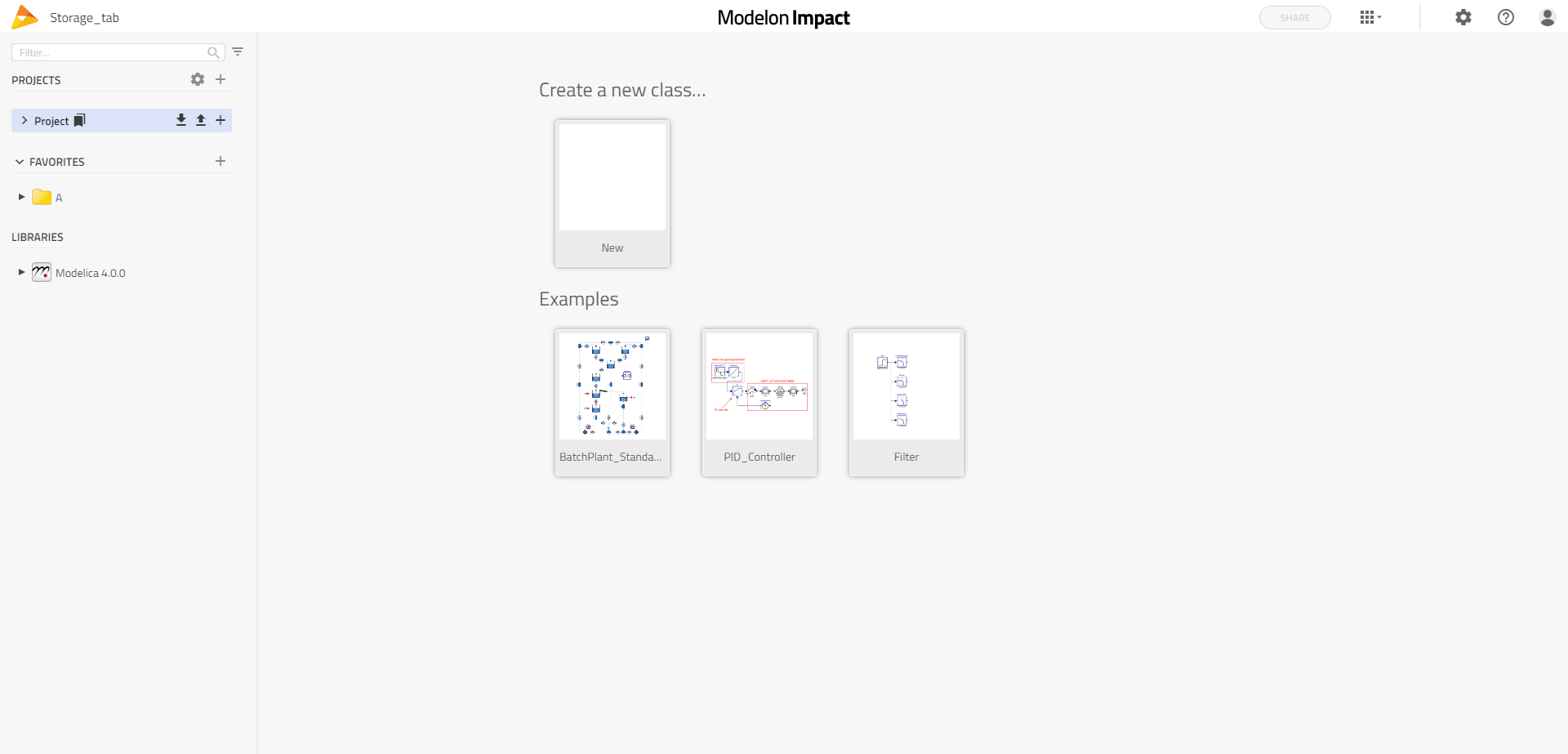
When Disk usage reaches 100% Modelon Impact will not function properly. In this case, you need to do some cleanup.
How to cleanup using Modelon Impact UI🔗
There are two ways to delete generated resources such as results and log files.
- If you know what model and result you want to delete them for, you can do it in the result mode.
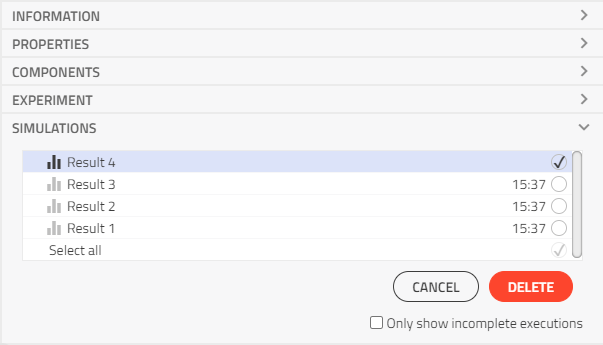
- If you want to clean the whole workspace you can use the Delete Data feature in the Storage tab in Settings.
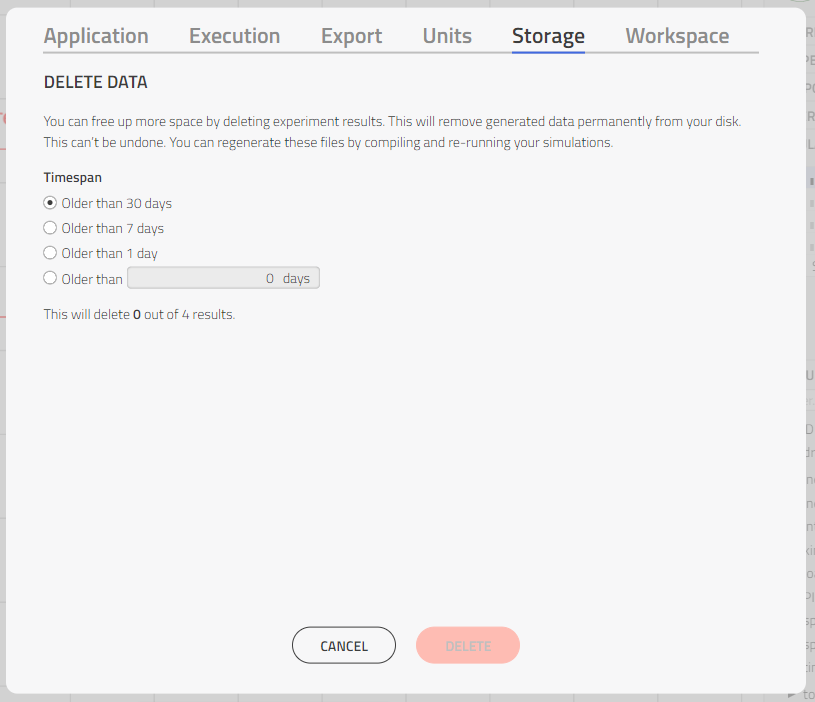
On this tab, you can choose between different defaults for the age of the data or specify any period regarding the age. Data older than the specified period will be deleted by clicking Delete.
How to cleanup using Python Client🔗
To use this method, you need to have a good grasp of how the Python client works. Follow the below code in Jupyter Notebook to list what generated resources take up the most space and delete experiments and compiled FMUs. It could be extended to delete resources depending on certain criteria of course. Follow the below steps:
- Running the below code in Jupyter Notebook will list disk space with workspaces that have generated resources

!du -hcs /home/jovyan/impact/generated_resources/workspaces/* | sort -hr
- Please enter the workspace ID in which you want to delete the experiments and compiled FMUs
from modelon.impact.client import Client
client = Client()
ws = client.get_workspace("<Workspace-Id>")
- Run this to delete the generated resources
exps = ws.get_experiments()
fmus = ws.get_fmus()
for e in exps:
e.delete()
for f in fmus:
f.delete()
How to check your experiment size using python client🔗
- Please enter the workspace ID that contains the experiments you want to query the size for.
from modelon.impact.client import Client
client = Client()
ws = client.get_workspace("<Workspace-ID>")
- Fetch the experiments in that workspace.
exps = ws.get_experiments()
- Get the total size of the experiments(in kb).
size = sum(e.get_size_info().total // 1000 for e in exps)
print(f"Size (kB): {size}")
How to generate less data from your simulations🔗
If you are running simulations that generate a lot of data there are some ways of reducing the file size of generated resources namely result files and logs.
Use result filters🔗
By default, all model variables are stored in the result files. In many models, this can be several thousand variables which can lead to result files, that are several 100's of MB big quite easily. Normally you are only interested in looking at a few of them in the result anyway. In order to save result trajectories in a more controlled way you can use filters from the Outputs tab in the Experiment mode.
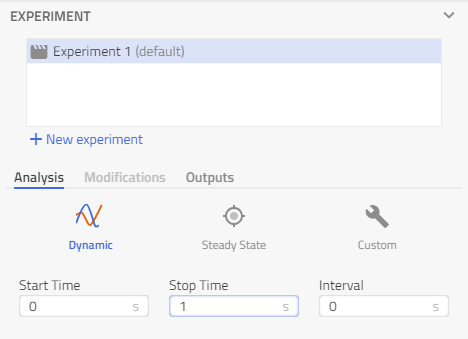
This will make it so that only variables matching the filters will be stored in the result. For large multi-run experiments, this is almost a must to keep the amount of generated data at a reasonable level.
How to Check log levels which can consume disk space🔗
Even though the log files are in general much smaller than the result files they can consume a lot of disk space if a high log level is selected i.e. Debug or Verbose
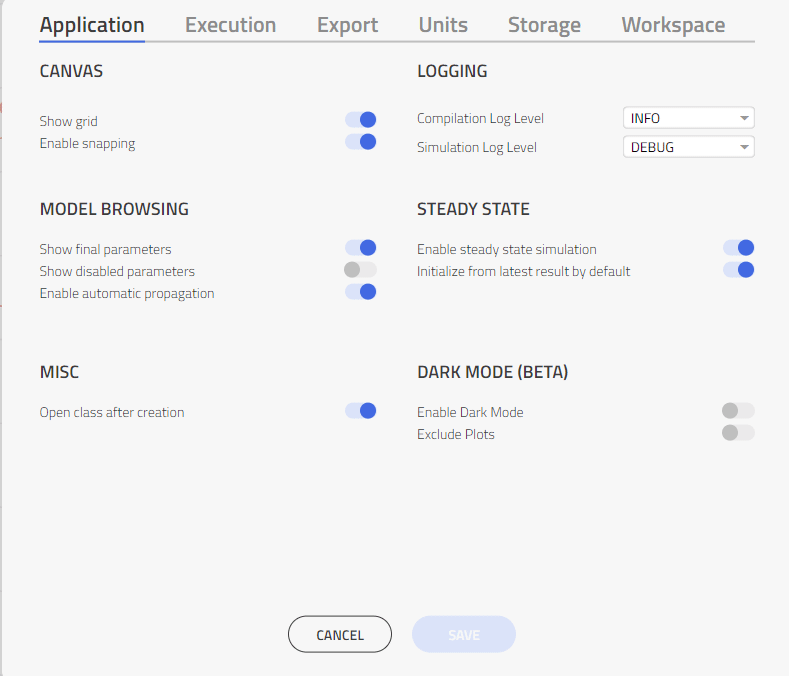
It is a good idea to generally use Warning as the log level for both Compilation and Simulation if you are not doing specific debugging that needs a higher level. This is especially true for the Simulation log level, as that generates logs for every simulation and it scales with simulation length.
Related articles🔗
Switch Workspace | Global Library | Find Model | Create Workspace